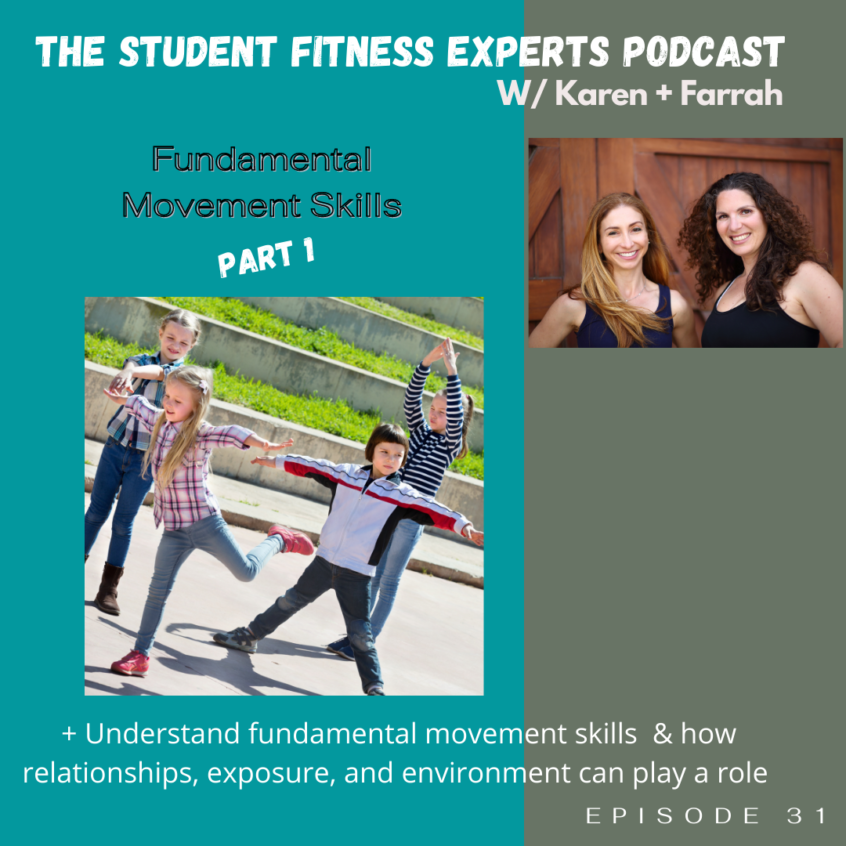“As they [children] continue to grow, they keep building these little blocks on top of each one. And that’s what enables them to be able to do these more complicated skills as they get older.”
The Student Fitness Experts podcast is a very intentional venture that aims to create a playful movement to help students grow up with inner confidence and self-awareness and a healthy body and mind.
In Part One of the Fundamental Movement Skills Series, Karen and Farah explain fundamental movement skills and their importance in a child’s growth. They explore how sibling relationships, exposure, and environment could play a role in shaping a child’s movement skills and why, as parents and coaches, we need to familiarize ourselves with the three blocks of FMS in children. We also dig into understanding muscle memory building and how to help your kids in the process even if they’re having a hard time fitting in!
Tune in to integrate fundamental movement skills in your child’s play curriculum and set them up for ultimate success!
TimeStamps:
- [01:34] What are some fundamental movement skills?
- [02:43] Why is it important to build fundamental movement skills at certain stages of life?
- [04:06] How do sibling relationships positively impact a child’s growth?
- [05:37] What are the three blocks of fundamental movement skills?
- [10:12] Familiarizing yourself with the fundamental movement skills
- [11:35] Why is it important to build movement skills in children?
- [15:53] The age when muscle memory starts to get hardwired
Quotes:
“As they [children] continue to grow, they keep building these little blocks on top of each one. And that’s what enables them to be able to do these more complicated skills as they get older.”
“If we could teach kids how to move in all different directions, and then teach coaches the importance of why we should be doing this, then, maybe we wouldn’t have so many injuries down the road.”
“If you’re familiar with these building blocks of these skills, and you’re looking at rotation and coordination and balance, then you can take a step back, and you can say, does this child have those skills? Are they lacking in an even simpler way of moving? That’s why they’re struggling.”
“If they’re [fundamental movement skills] not properly developed, or mastered, there is a likelihood that they will have more trouble academically and behaviorally.”
“Understanding these environmental factors, our vision or hearing or something like that can also be one of the issues. It is really helpful to be able to understand your students and what they need and be able to support them.”
“They can learn how they’re moving, understanding their body, how they’re moving it through space, and then have that confidence to take on all these different skills. So that when you want to go into teaching them more specialized, be more specific, go into the complex skills.”

